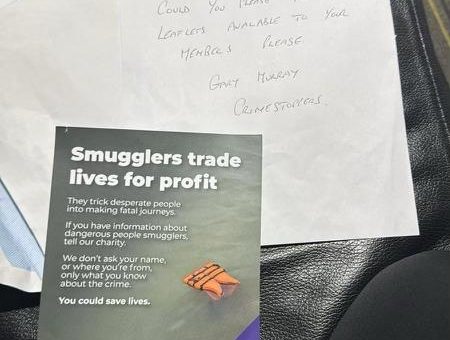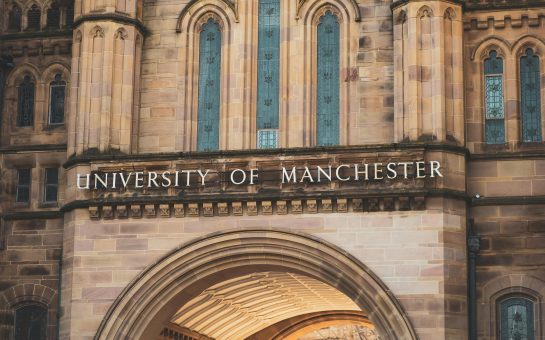Former Home Secretary Lord David Blunkett says he’s still scratching his head about the ‘toxic cocktail’ that led to Britain’s shock exit from the European Union.
With Prime Minister Theresa May set to trigger Article 50 any time soon, Blunkett, who stepped down as an MP in 2015, is urging UK communities to come together in the face of deeply uncertain times.
New Labour stalwart Lord Blunkett said he was surprised to see a majority of people in his hometown of Sheffield vote to leave the EU.
“I was very hurt and disappointed,” he told MM.
“I was brought up short a bit by the fact that it wasn’t just those in the most deprived areas that were voting Brexit. It was actually people who were better off, who felt that they weren’t going to be hurt.
“We’ve got two sets of people – one lot who felt, ‘Well, things can’t be any worse for us, so we’ve got nothing to lose’, and people who thought, ‘Well, we’re fine and we’re not going to be affected, whatever happens’. That’s a very unholy combination.
“And so, some business people, some people working in the health service that I met, to my astonishment, were going to vote Brexit.
“And I think, given that we have two major Universities, and were the only University city to vote out, there was food for thought there as to, with a history of internationalism, with a background of radicalism, why?
“I’m still mulling that over.”
The Blair-era veteran was at the University of Manchester last week, speaking at the launch of its newest urban research programme.
Yet it was the fallout from Brexit – and lack of community spirit – that was clearly playing most on his mind.
“I think the word reciprocity has been missing for a very long time. People need to feel that it’s two-way, they need to feel that they’re getting something out, in order to put something back in. But you don’t get anything out of life unless you try.
“There’s a great analogy that was used by a guy who died last year, Rabbi Lionel Blue…he told a story about Reuben who went down to the Synagogue. Six weeks he was praying to the Lord, and he said ‘Lord, my business has gone bust, my house is being repossessed, please Lord, let me win the lottery.’
“And on the sixth week, the Lord had had enough, and the booming voice comes down: ‘Reuben my boy, the Lord helps those who helps themselves.’ And Reuben said, ‘But Lord what should I do?’
“And the Lord said, ‘For God’s sake, buy a ticket!’
“You’re not going to win the lottery unless you buy the ticket, and life is exactly like that.
“What you put in you’ll get out. I think we’ve got to start arguing for that, we’ve got to say, ‘We are where we are now’, but we’ve got to persuade people that this is not the end, this is not doom and gloom.
“We can generate within our own communities, we can become open-minded and open-hearted again. We can stop this closed attitude to the world outside.
“Whilst obviously we know that globalisation has a differential impact on different parts of our community, the job of all of us, not just Government, but of Universities, of civic society, is to help people work that through – combat it where it is dangerous and damaging, embrace it and ride on it where it’s beneficial, because it’s not going to go away.”
Lord David Blunkett speaking at @UoMUrban‘s 2nd #MUILaunch on importance of Unis to be embedded in society that created them. pic.twitter.com/rdS0HVXOKX
— Alexis Darby (@alexis_darby) March 9, 2017
The Manchester Urban Institute (MUI) aims to help develop UK cities into more inclusive, just and environmentally and socially sustainable places for current and future generations to live in.
It hopes to achieve this goal through world-leading research and engagement with the impact of contemporary issues relating to the modern city.
Perhaps the greatest challenge of all will be that posed by Brexit – as we head towards an unknown future outside of the European Union, individual cities and regions within the UK are finding themselves having to redefine their place within our increasingly fragile world.
Lord Blunkett sees the solution to this identity crisis, in part, through a greater level of partnership between the academic institutions of Britain’s diverse cities, and the people that co-inhabit them.
“The importance of the Urban Institute, and the commitment to reach out, is really to ensure that the University is embedded, and continues to be embedded, in the local society which created it. Civic Universities, and international global outreach Universities, combined in one,” he told the MUI launch event audience.
“I think the best Universities are those who feel that the community is contributing in, as well as them contributing out. So, it’s not a missionary work, it’s a partnership. It’s about people being able to learn together, to refresh together, to be able to inspire together.
“You have got here a wonderful opportunity, because of the dynamism of Manchester and Greater Manchester and beyond.”
Lord Blunkett said the appeal of many of the populist political heavyweights of the last year – think Donald Trump and Nigel Farage – grew wildly after turn-of-the-century positivity had dried up following the financial crash in 2008.
“Government understandably and unavoidably had saved us from a total meltdown of the economic and banking system, but at the expense of people who couldn’t afford to carry that burden,” he told MM.
“I think that resentment towards both 1980s deindustrialisation and the global meltdown brought a change in status, a change in optimism and hope that had existed before.
“You talked to people in the early 2000s, and there was a feeling of optimism and hope. There was major investment in public infrastructure, in schools and hospitals.
“The minimum wage had been brought in, houses were being refurbished under the Better Homes Programme. There was a genuine feeling that things were getting better.
“And then suddenly, the connection between things getting much worse and people remembering things that they had had in the past… I think that combination was a pretty toxic cocktail, and I think that we’re reaping the bad reward of it now.”
The next event in the Manchester Urban Institute’s calendar is a talk by Professor Rachel Weber, from the University of Illinois, entitled ‘Risky business: Explaining the use of complex financial instruments by local governments’.
It takes place on March 22 at 4:00pm, at the Samuel Alexander Building Theatre in the University of Manchester.
Image courtesy of Policy Exchange via Flickr, with thanks.



